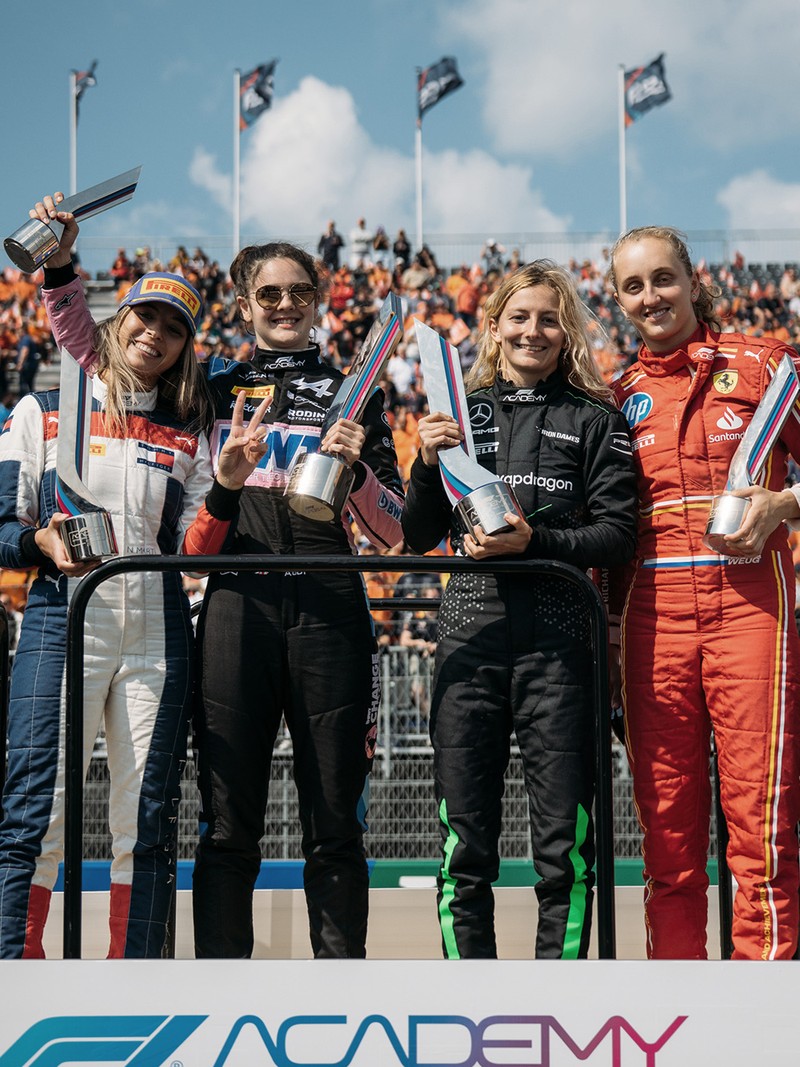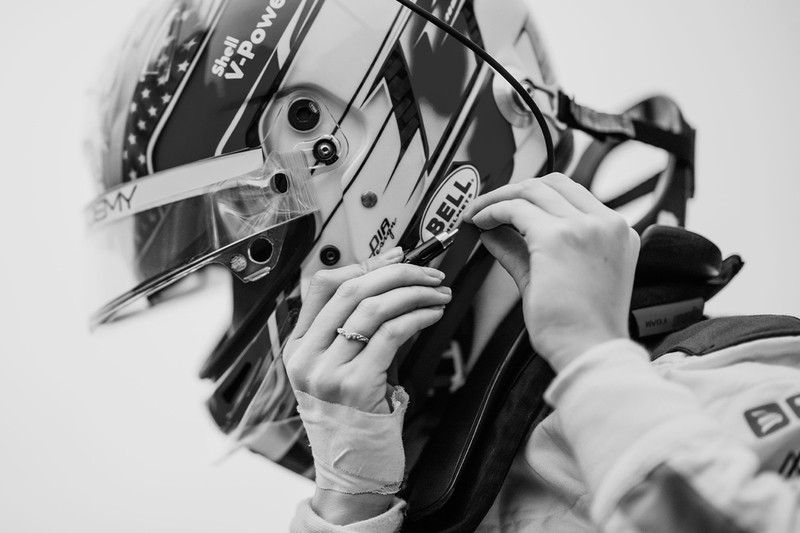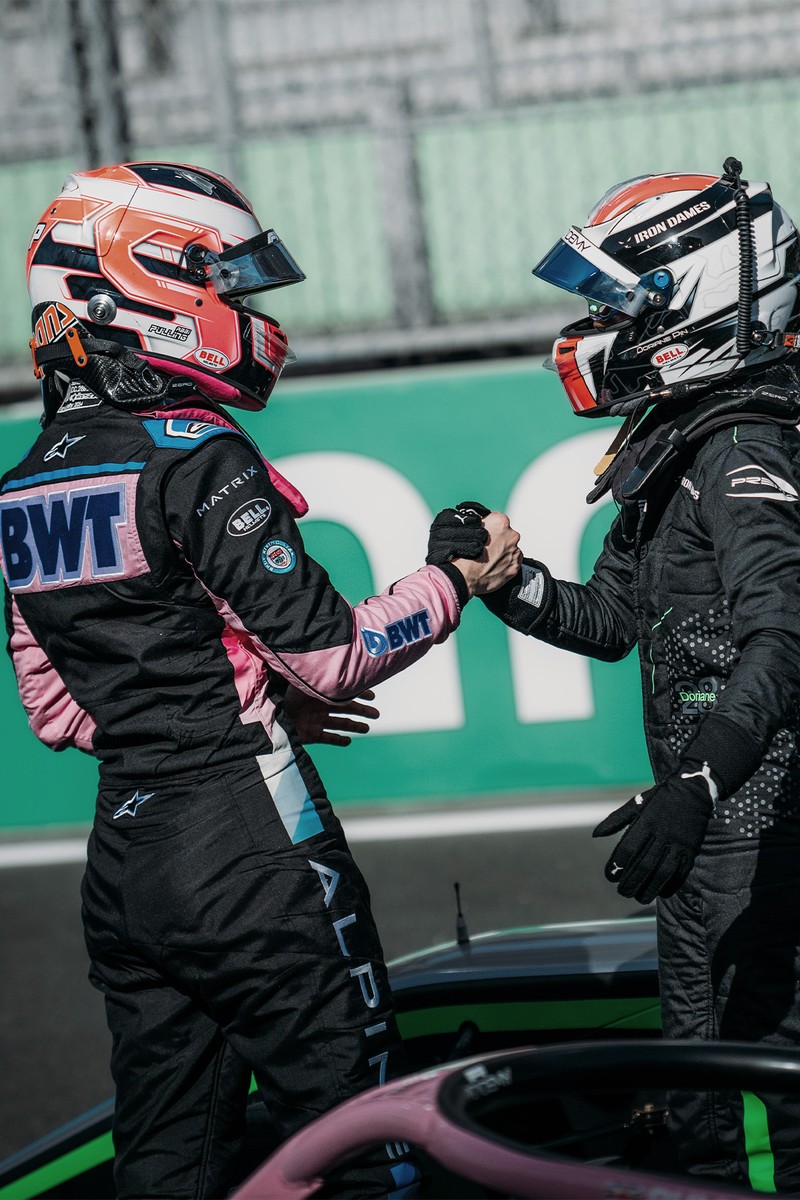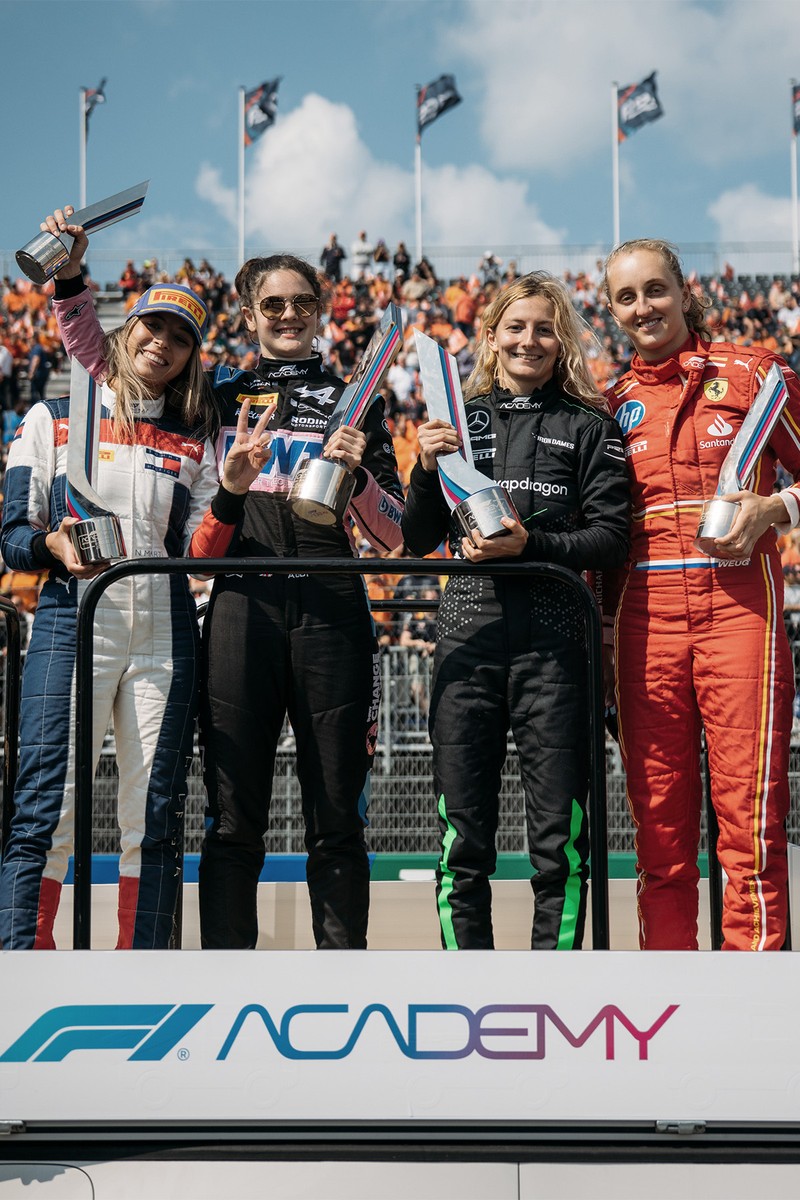
10 Minutes With… Susie Wolff, F1 Academy
When did you first fall in love with motorsports?
Even as a little girl, I was very competitive. I loved speed and adrenaline, and I remember my first love being my little peewee 80 motorbike. I would always try to keep up with my brother and my mum – I loved that sensation of speed and challenging myself. To this day, I love pushing myself out of my comfort zone.
What’s been the pivotal moment in your career so far?
If I look at all the stages of my career, the biggest turning point was being picked up by Mercedes-Benz to drive for them in German touring cars, because that's where I met my husband. It’s also where I developed into a tough racer, and that then led me to the opportunity for Formula One. It was 2006 when I first tested for them, so I was only 23 at the time.
Is there a key piece of advice you’ve been given that’s stuck with you?
I think it would be two pieces of advice. Operating in quite a male-dominated environment, I was told to just be me and be authentic. There's no sense trying to morph yourself into the people you find yourself surrounded by. The second one was to pick yourself back up and keep going. That tenacity and to keep going when the going gets tough – it’s so important.
What’s something you think people misunderstand about F1?
That the sport is so glamorous. We fly around the world and have these incredible race weekends that look so impressive, but it's a 24/7 job and it's a huge sacrifice for the drivers and for the personnel working in Formula One. Sometimes it definitely doesn't feel as glamorous as it looks.
What do you hope viewers take away from the new Netflix series?
I hope it challenges people’s perception or misconceptions about the sport – especially about it being male dominated or very privileged. I won't deny that those two things are true, but I think it's changed and it's progressing. The important thing is that in F1: The Academy, we get to show these human stories, specifically how tough it's been for these young drivers, as well as how fierce they are, and how good they already are to be at that level. I hope it will inspire the next generation to say, well, maybe I can do that. It’s not about being a racing driver; it's about challenging the preconceptions that live in your own head and the limitations you put on yourself.
Did you have to overcome similar challenges at the start of your career?
It was a very different time when I was racing, and I feel immense pride at having been part of changing the sport for the better. But I don't look back with any bitterness because I loved racing. I raced because I loved it, not because I was trying to prove a point. Even now, when I look back on my most difficult moments in my career, I recognise that the sport is tough regardless of your gender. It’s so competitive and there's only ever one winner. But I definitely feel hopeful that it's progressing in a good way. It doesn't mean there isn’t more that can be done, but I do think the sport is in a great place right now.
Can you share a moment from filming that resonated with you?
The very emotional moment for me was when I first took on the role. F1 Academy was racing on empty racetracks with zero partners, and the drivers and teams couldn't afford to race. Just over a year after taking on the role, I was in Jeddah, standing on the grid with the Netflix crew following me. I looked at these ten F1 liveries – Charlotte Tilbury, Tommy Hilfiger, Puma – and I looked at these young drivers getting ready for the race. It nearly brought a tear to my eye that the vision that so many people had told me would never be possible was now a reality. Sometimes you’ve got to make the impossible possible.
What’s the fastest decision you've ever had to make under pressure?
I’ve become really good at making decisions quickly because things move so quickly in our sport. Even if it's a bad decision, it's better than no decision at all. For example, we had a situation in Miami where a thunderstorm hit the grid just as the cars were going out. It was my call whether to start the race or postpone. It was a split-second decision, but we never put the drivers at risk. We then had to try and move the race to our next race weekend in Montreal, which we made happen. All in all, it turned out well, but it was one of those moments where the call rested entirely on me.
How do you define success now compared to ten years ago?
Success has changed a lot for me because before, success was a destination that I was so focused on. Now, I am much more appreciative of the journey. I know where real happiness lies – it's not just on the successes that you claim to have. Now it's about being part of a team, knowing that we are on a journey together, and focusing on smaller achievements than these big pinnacle moments.
Is there one thing you wish you'd known at the start of your career?
If you've got something to say, speak up. You don't need to always be the loudest voice in the room, but if you've got something to say, don't be shy. Quite often, I was the only woman in the room, whether that was an engineering debrief or another situation when I sometimes doubted the input that I was going to have. But looking back, I had every reason to speak because my opinions were just as valid. Becoming a wife, a mother and moving into the business side of the world, I realised it was time to stand up and take my position.
Who's one emerging female talent in motorsports we should all be watching right now?
Everyone from F1 Academy. There are so many women who I think are incredible at what they do. I think on the track, you’ve got Abbi Pulling and Marta García. There's also Jamie Chadwick, who's achieved great things in the sport and should get the recognition. But really, there are too many talented women for me to single out one – more than there’s ever been. That's something I think is good for all of us.
Who's been your biggest inspiration?
My husband. He’s in the same industry and never saw a limitation in what I could achieve on my own. He pushed me to be the best and never shy away from challenges because he knew they would make me stronger. Sometimes I wondered why he didn't help me more, but he knew that was an important part of my journey. The failures and tough moments are just as important as the successes. You see that reflected on the show as well, with the support that the drivers get from their own families.
Finally, what’s been your favourite racing moment of all time – either watching or driving?
Driving – probably during a practice session held during a Formula 1 Grand Prix weekend, where I ended up only two tenths off my teammate and proved that a woman could be competitive.
Watch ‘F1: The Academy’ on Netflix now.
Visit NETFLIX.COM
DISCLAIMER: We endeavour to always credit the correct original source of every image we use. If you think a credit may be incorrect, please contact us at info@sheerluxe.com.


/https%3A%2F%2Fsheerluxe.com%2Fsites%2Fsheerluxe%2Ffiles%2Farticles%2F2025%2F06%2Fsl-business-edition-f1-interview-3.jpg?itok=IGpcHnMo)


